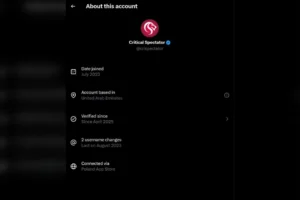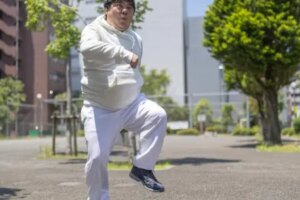
Ironically, this really doesn’t seem like the best way for civic leaders to be using their time.
On Thursday, the city of Toyoake, in Aichi Prefecture, announced that it plans to introduce a municipal draft ordinance at its upcoming city council session. Titled “Ordinance Regarding the Promotion of Appropriate Use of Smartphones and the Like,” the proposal includes official limit guidelines on the amount of time per day that residents of the city should be allowed to use their smartphones and other electronic devices.
This might sound familiar to those who remember how, in 2020, the prefectural assembly of Kagawa passed an ordinance capping smartphone and gaming time for children living in the prefecture. However, the proposed Toyoake ordinance wouldn’t just apply to kids, but to all of the 68,000-plus people living in the city, full-grown adults included.
The ordinance draft calls on residents of Toyoake to limit their time using smartphones, gaming devices, tablets, and PCs to two hours per day, while granting exceptions to work or study-related use.
▼ “No, no, you’ve got it all wrong, see?!? We’re not playing these games for fun…we’re professional e-sport competitors, so we’re playing Fatal Fury for work reasons…yeah, that’s what we’re doing…”
The rationale behind the proposal is that a stated concern that excessive use of such devices disrupts lifestyle rhythms, adversely impacts health, and reduces the amount of conversation between family members. Regarding the proposal, 56-year-old mayor Masafumi Koki said “While acknowledging that smartphones are a convenient lifestyle tool, I want residents to consider the societal issue of their appropriate use.”
The proposed ordinance also includes guidelines that, to ensure they’re getting enough sleep, elementary school-age children not use smartphones and other devices past 9 p.m., and older children should shut them off no later than 10 p.m., again, ostensibly, with the exception that they may continue using the devices for scholastic purposes.
As with other government attempts to establish blanket limits, the proposal appears to fail to consider several aspects of how and when people use smartphones and other devices, as well as overlooking how other hobbies can be just as problematic if over-indulged in. For example, under the ordinance, if you spent two hours playing games, then put down your phone and picked up a paper book to read, that would be fine. But if you do the exact same thing, only you were reading an e-book, then no, that would be bad, the ordinance says. Likewise, the ordinance says you really shouldn’t be watching YouTube videos for more than two hours, because watching online videos for that long is bad for anyone. On the other hand, if you’re watching TV, a medium that’s perhaps more familiar to the city council members since it was around during their own childhoods? Well then, the ordinance doesn’t have anything bad to say about that, so you have its de-facto blessing to watch as many hours of cheesy TV dramas or celebrity gossip talk shows as you feel like. Heck, as long as you turn off you electronic devices after two hours, the ordinance is fine with you spending that extra time getting drunk, gambling, or doing any number of less-than-wholesome activities, since, again, the limits would apply to adults too.
▼ Clearly, it’s the PC time that this guy needs to limit, not his alcohol intake.
As for blanket usage limits being a way to promote family communication, that’s also questionable. It’s outdated to think that all households consist of a husband, wife, and two kids, who’d all gather in the living room and have deep, meaningful conversations if the government would just tell them when to get off their phones. For many adults who live alone, their phone is their primary way to stay connected to the important people in their lives. Especially for those living far away from family and friends for work or school reasons, or whose jobs require them to work nights or holidays, a face-to-face chat might not be something they can easily do, and so text messages, photo sharing, and other online methods are often how they keep in touch on a day-to-day basis.
If ratified by the Toyoake city council, the Ordinance Regarding the Promotion of Appropriate Use of Smartphones and the Like will go into effect on October 1. This is, thankfully, a case in which the stupid cloud has a silver lining, as the ordinance, in its current form, contains no provisions for enforcement or penalties for non-compliance. Still, with people across Japan struggling with rapidly rising consumer prices, rice shortages, increasing bear attacks, and all sorts of other problems in recent months, it sure seems like there are more important issues for the nation’s politicians to be working on than trying to police full-grown adults’ smartphone leisure time.
Source: Yomiuri Shimbun, Chunichi Shimbun
Top image: Pakutaso
Insert images: Pakutaso (1, 2)
● Want to hear about SoraNews24’s latest articles as soon as they’re published? Follow us on Facebook and Twitter!
Like this:
Like Loading…





